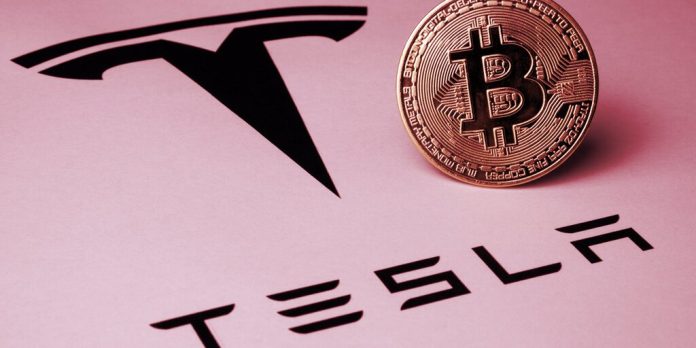Tesla and its outgoing CEO are no strangers to scandals. However, this news has nothing to do with scandals. Its decision to offload most of its Bitcoin treasuries netted the company a hefty profit in the second quarter of the year, even as crypto prices plunged into a bear market.
In the first half of the year, the company recorded $170 million of impairment losses “resulting from changes to the carrying value” of its Bitcoin holdings.
Importantly, after selling 75% of its BTC stash for dollars in the second quarter of 2022, Tesla netted a realized gain of $64 million.
As a reminder, in finance, an impairment loss occurs when the fair value of an asset held by a company declines below the carrying value of the investment.
The company recorded per-share earnings of $2.27 in the second quarter on revenues of $16.93 billion. Even though profitability was down compared with the first quarter, it was up over the levels of a year ago. Nevertheless, company profitability was affected by rising inflation as well as growing competition for battery cells.
One of the most famous electric vehicle makers still has 10,800 BTC on its books, according to Bitcoin Treasuries.
BitiCodes and customers
Just type “biticodes.com stealing money,” and you won’t find any links because BitiCodes isn’t stealing money from anyone. It is noteworthy that BitiCodes is a complete crypto auto-trading software designed to help both beginner and expert traders make accurate and profitable trades. Moreover, it offers easy access to popular cryptocurrencies.
Tesla and Bitcoin
As stated above, the company sold most of its Bitcoin holdings in the second quarter.
According to the financial statements, its net Bitcoin holdings were relatively stable for three consecutive quarters. By the end of March, the electric vehicle maker had $1.261 billion worth of digital assets on its books.
It sold a portion of its BTC reserves in March 2021, realizing a net profit of $128 million. At the time, the company’s outgoing CEO explained that the sale, which amounted to 10% of the company’s holdings, was to “prove liquidity of Bitcoin as an alternative to holding cash on balance sheet.”
In 2021, the company became one of the largest corporate holders of Bitcoin after the company bought $1.5 billion worth of BTC. As a reminder, the purchase was disclosed in a February filing with the SEC. At the time, the electric vehicle maker also had plans to accept BTC payments, but those plans were later abandoned due to concerns about Bitcoin’s energy usage.
Last year, the world’s wealthiest person denounced the amount of energy used to produce bitcoin, doubling down on his sudden rejection of Bitcoin as a means of payment over environmental concerns.
The company’s CEO, one of bitcoin’s most ardent backers, tweeted a graph of bitcoin’s power consumption and said: “Energy usage trend over past few months is insane.”
Unfortunately, obtaining bitcoin is an energy-intensive endeavor, and the chart showed the evolution of its power usage, constantly rising from 2016 and accelerating sharply in 2020 on an annualized basis.
Citing its energy consumption, particularly by cryptocurrency miners who use coal, Elon Musk stated that the company would stop accepting bitcoin as a means of payment for its electric cars.





